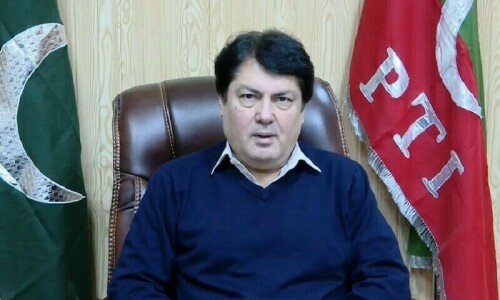Director and producer Syed Furqan Haider, one of the founders of the commercial theatre in Karachi, recently pointed out that among the multiple reasons behind the decline of theatre in Pakistan are the lack of training institutes and investment, divisions amongst audiences on the basis of class and economic power, and the decreasing regularity of performances.
Certainly, it cannot be denied that theatre, particularly in the Urdu language and catering to mass audiences, is in a state of progressive decline in the country.
Yet the state, as represented through various governments' policies, has done little to ease the situation. We have seen mass-audience theatre being marginalised and forced to exist on the peripheries of the mainstream.
The government Arts Councils have largely turned their backs on theatre that does not cater to upper-class audiences. Efforts such as Lahore's annual RPTW World Performing Arts Festivals have come from the private sector.
This situation must be remedied. The performing arts, particularly theatre, are a vital avenue of education and the formation of a national identity. It is here that a society debates its characteristics and politics, and forms an understanding of its history and context.
The importance of this function cannot be overestimated given that Pakistani society is today in a state of flux over its identity. The need for state sponsorship and support is evident from the success of Karachi's National Academy of Performing Arts, which has in just a few years improved the quality and frequency of theatrical work.
This model needs to be replicated on a wider scale, so that the performing arts are allowed to develop into a commercially viable and meaningful industry in their own right, and play their role in promoting tolerance and harmonious coexistence.











































Dear visitor, the comments section is undergoing an overhaul and will return soon.